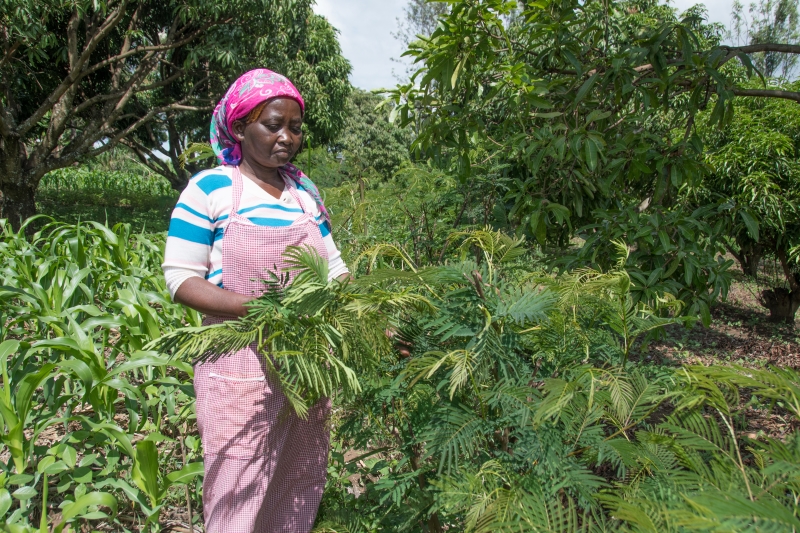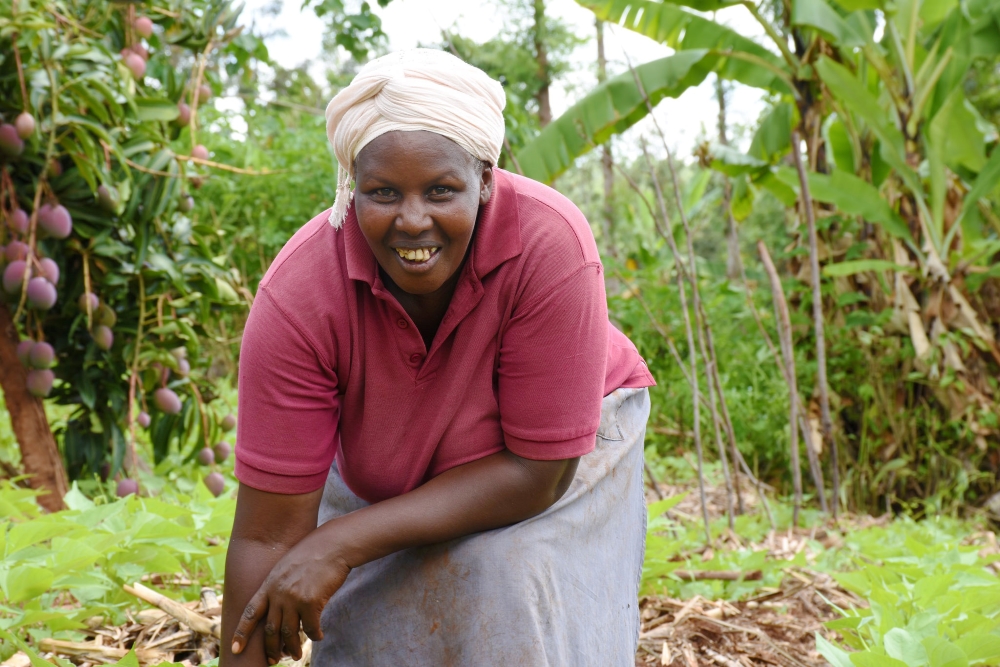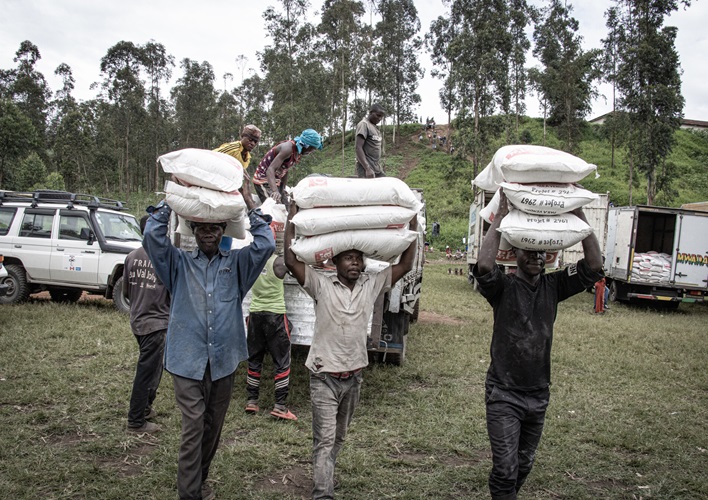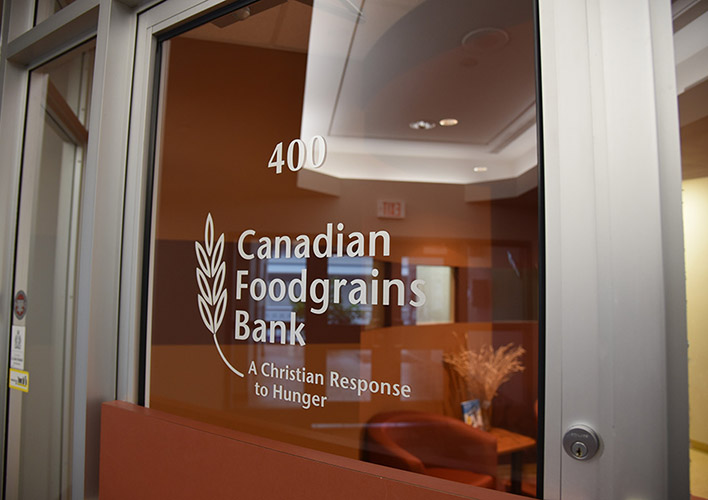Time Period: April 1, 2015 to September 30, 2020. An initiative of Foodgrains Bank members Mennonite Central Committee Canada, World Renew and Tearfund Canada.
THE GOAL: Improve food security and sustainable livelihoods for 18,000 small-scale farming households in 241 communities across Ethiopia, Kenya and Tanzania.
THE RESULT: The goal was exceeded as over 51,000 households improved their food security— increasing their quantity and quality of foods by the end of the program.

“Now, with even a small amount of rain, I can harvest something. I also do not have to pay for any labour as
before and have time to do other important things. With my extra time, I am able to go to the market in the
morning and sell some porridge to make some more money. I could never have afforded the money or the time
before to do this.” – Naomi Ndunge, a Kenyan participant in a Scaling-Up Conservation Agriculture project of
our member World Renew. (Photo: Phil Maher/World Renew.)
Fighting hunger is about more than the quantity of food someone eats.
It’s also about making sure they have the right kinds of food for optimal health. Families should have an ‘acceptable’ Food Consumption Score (FCS)*.
Before the program: 71% of participants achieved an acceptable FCS.
After the program: 94% of participants achieved an acceptable FCS!
Conservation agriculture also means more time for farmers. Conservation agriculture is less labour intensive than previously used techniques.
• 76% of female farmers reported they needed less time to prepare their land for planting.
• 90% reported they needed less time for weeding.
• Therefore 19,000 women and 5,444 men could participate in savings and loans groups.
• In 2020 alone, these groups saved more than $900,000 CDN.
Training also allowed participants to increase their household income.
• Farmers reported a net profit of $999 CDN from their conservation agricultural crop yields.
• Almost 10,000 women joined marketing groups, learning best practices for selling their crops, including marketing together.
• Earning almost 40% more than if they had marketed alone!
These are just some of the results that participating farmers achieved. All this wouldn’t have been possible without the support of generous Canadians who donated $4.67 million, or support from the Government of Canada, which totalled $14 million. Thank you!
*Food Consumption Score calculates how many days during the last seven days before the survey a household has eaten foods from different food groups. Different weights are given to each food group based on nutritional value. The days and weightings are combined to calculate the score, capturing both how much people are eating and its quality and nutritional value.




